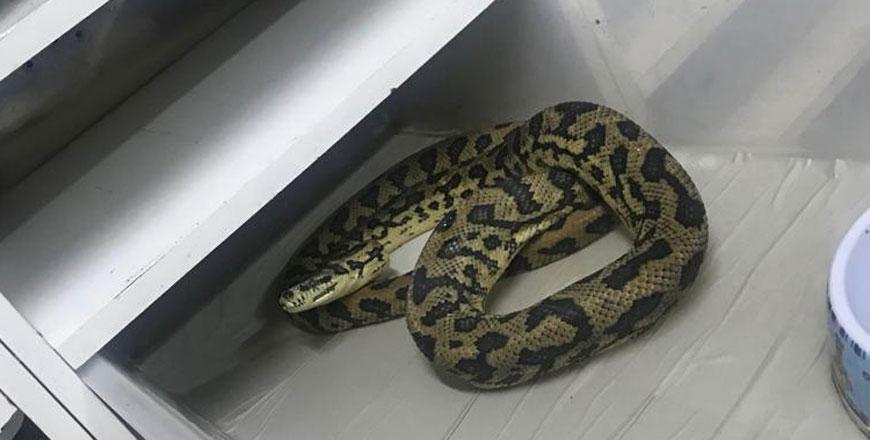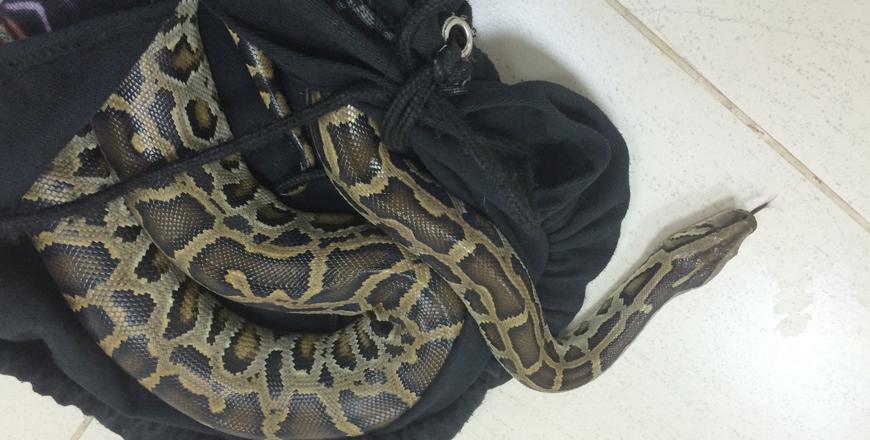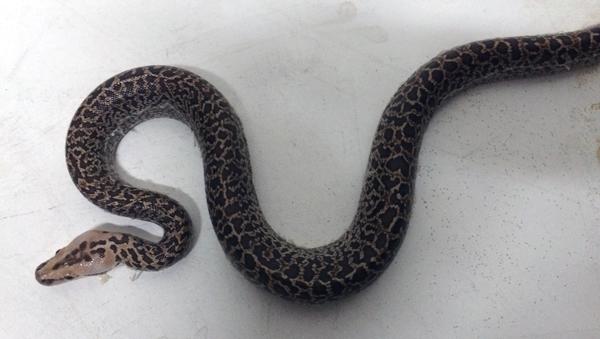You are here
Authorities uncover python farm in Balqa
By Hana Namrouqa - Jun 21,2019 - Last updated at Jun 21,2019

One of around 70 pythons authorities seized during a raid on a farm in Moubes in Balqa Governorate on Thursday (Photo courtesy of the RSCN)
AMMAN — Authorities on Thursday discovered around 70 pythons in Moubes in Balqa Governorate; all allegedly brought into the country illegally, according to the Royal Society for the Conservation of Nature (RSCN).
A team from the RSCN, the Civil Defence Department, the Rangers and the Ministry of Interior was formed to inspect the farm after several residents in the area complained, citing concerns of pythons at a farm near them.
“Upon inspection, the team discovered around 70 pythons of different sizes, some as long as four and five metres, at the farm, which is licensed as a farm for pet birds,” Abdul Razzaq Hmoud, head of the RSCN’s Hunting and Regulation Department, told The Jordan Times.
The pythons were kept for breeding and trade purposes, though not for the local market, Hmoud said, noting that authorities are investigating how the pythons, which originate from tropical regions, were brought into the country.
“The owner of the farm was referred for legal action... and because the pythons cannot be released into the wild, as they could become invasive species, the pythons are now being kept at the farm, but their owner has no right over them,” Hmoud highlighted.
Due to a lack of technical expertise and enough space for such a large number of pythons, the RSCN and authorities decided to keep the pythons at the farm, he said, noting that they will soon be transferred to their countries of origin at the expense of their owner.
“This is the first time that we have discovered a farm for breeding and keeping pythons in Jordan. We have seized and confiscated pythons from traders illegally smuggling them for trade purposes in the regional market, but these were individual cases,” Hmoud noted.
He highlighted that while the pythons at the farm are generally non-venomous, experts will need to inspect them and decide on every python’s origin and species.
Hmoud noted that pythons are listed under the Convention on International Trade in Endangered Species of Wild Fauna and Flora (CITES).
CITES aims at ensuring that the international trade in specimens of wild animals and plants does not threaten their survival, according to its website, which indicated that around 5,000 species of animals and 28,000 types of plants are protected against over-exploitation through international trade.
Related Articles
AMMAN — Authorities have seized and confiscated a constrictor python whose owner was displaying it at Jabal Amman’s Rainbow Street over the
Wildlife inspectors seized and confiscated four lion cubs and scores of other endangered species from a pet shop in Amman, the Royal Society for the Conservation of Nature (RSCN) said Wednesday.
AMMAN — The authorities on Tuesday announced the seizure and confiscation of 130 exotic pythons, which were found in the possession of a man


















